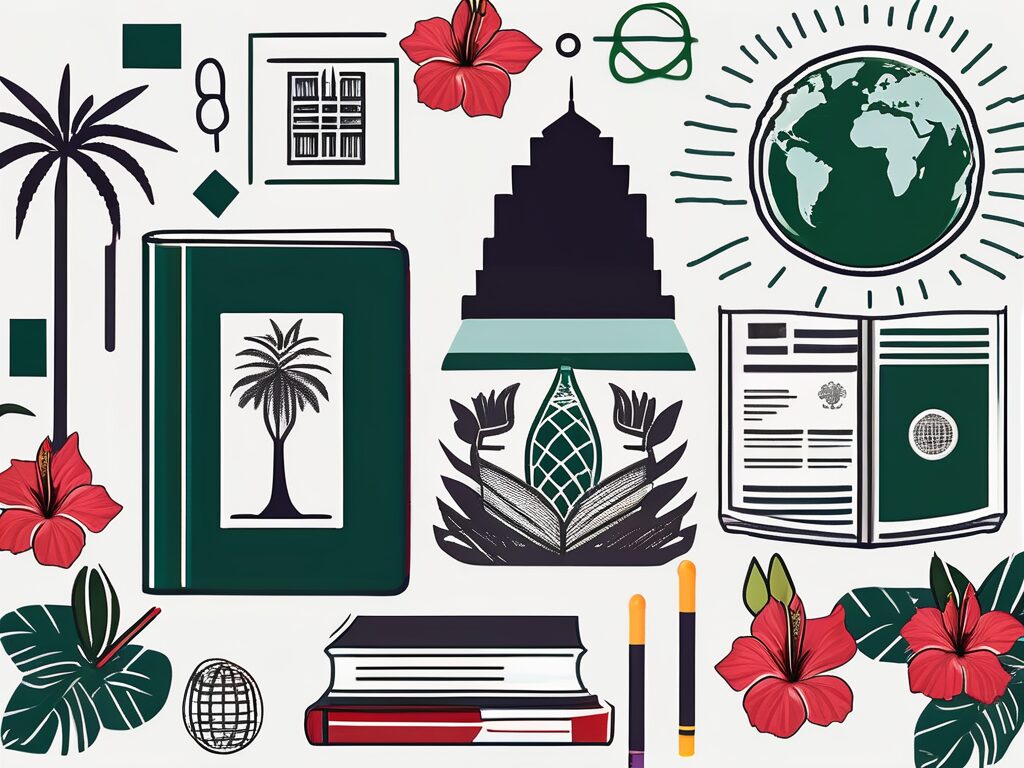Embarking on a teaching career in Malaysia is an exciting prospect. The country’s rich cultural heritage, coupled with its commitment to education, makes it an ideal destination for international school teachers. However, like any other country, Malaysia has its own set of customs regulations that teachers need to be aware of. This guide will delve into nine of these regulations to help you navigate your new professional landscape with ease.
1. Respect for the Malaysian Flag
The Jalur Gemilang, as the Malaysian flag is known, is held in high esteem. It’s a symbol of national pride and unity. As an international teacher, you’re expected to show the same respect. This means standing up during the national anthem and ensuring the flag is handled with care.
Comparatively, this is similar to the respect shown to the Union Jack in the United Kingdom or the Stars and Stripes in the United States. The key takeaway is to always show respect for national symbols, regardless of the country you’re in.
2. Dress Code
Malaysia is a predominantly Muslim country, and modesty in dress is highly valued. Teachers, in particular, are expected to dress professionally and conservatively. For women, this means avoiding revealing clothing, while men should avoid shorts and sleeveless shirts in a professional setting.
Think of it as similar to the dress code in a British private school, where formal attire is the norm. The main difference is the emphasis on modesty due to cultural and religious considerations.
3. Religious Observances
Religion plays a significant role in Malaysian society, and as such, religious observances are taken seriously. This includes respecting the fasting period during Ramadan and understanding the significance of religious holidays.
Just as you would respect the observance of Christmas or Easter in a Christian-majority country, it’s important to show the same respect for Islamic holidays in Malaysia.
4. Language Use
While English is widely spoken in Malaysia, Bahasa Malaysia is the national language. As an international teacher, it’s important to respect this. While you’re not expected to be fluent, learning a few basic phrases can go a long way in showing respect for the local culture.
Think of it as similar to learning French while teaching in France or Spanish while teaching in Spain. It’s a small gesture, but one that can have a big impact.
5. Punctuality
Malaysians place a high value on punctuality. Being late is seen as a sign of disrespect. As a teacher, it’s important to set a good example by always being on time for classes and meetings.
It’s a similar expectation to what you’d find in a British school, where punctuality is also highly valued.
6. Food Etiquette
Food is a big part of Malaysian culture, and there are certain etiquette rules to follow. For instance, it’s customary to use the right hand when eating or passing food. Also, as a sign of respect, you should always accept food when it’s offered to you.
It’s a bit like the British tradition of always offering a cup of tea to guests. It’s a sign of hospitality and refusing can be seen as rude.
7. Gift Giving
Gift giving is a common practice in Malaysia, especially during festive seasons. However, it’s important to note that gifts should be given and received with the right hand. Also, gifts are not usually opened in the presence of the giver.
This is a bit different from the British custom of opening gifts immediately, but it’s all part of respecting local customs.
8. Respect for Elders
In Malaysia, elders are highly respected. This includes older colleagues and parents of students. As a teacher, it’s important to show respect for elders in your interactions.
It’s similar to the respect shown to elders in many cultures, including the UK. The key is to always show respect, regardless of cultural differences.
9. Non-Verbal Communication
Non-verbal communication is important in Malaysia. For instance, pointing with the index finger is considered rude. Instead, use your thumb with your fingers folded beneath it. Also, avoid touching someone’s head as it’s considered sacred.
These customs may seem unusual compared to British norms, but they’re all part of understanding and respecting a different culture.
In conclusion, understanding and respecting these customs regulations will not only help you integrate into Malaysian society, but it will also enhance your teaching experience. Remember, when in Rome, do as the Romans do – or in this case, when in Malaysia, do as the Malaysians do!
Elevate Your Teaching Career in Malaysia with The IQTS at UWE
As you embrace the cultural nuances of teaching in Malaysia, it’s crucial to ensure your qualifications align with international standards. The International Qualified Teacher Status (iQTS) Programme at UWE is designed to enhance your professional development and equip you with the skills needed to thrive in a global educational environment. With the iQTS, you’re not just adapting to a new culture; you’re also boosting your career prospects, expanding your professional network, and gaining a deep understanding of international curricula. Don’t let qualification barriers hold you back. Make Your Next Step towards success with the iQTS programme and become part of a community that values your growth and expertise.

